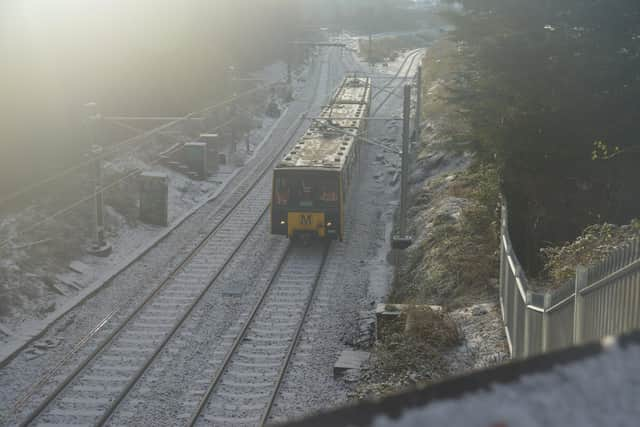Fears Tyne and Wear could enter ‘spiral of decline’ without more government cash as power bills set to TRIPLE on network
and live on Freeview channel 276
Transport officials expect the cost of high voltage power used to run the network will be almost triple what was expected this year – jumping from an initial £8.4 million to £21 million.
While bosses at Metro operator Nexus believe this can be absorbed thanks to Government funding which has propped up finances since the Covid pandemic, concerns remain for next year.
Advertisement
Hide AdAdvertisement
Hide AdAnd it has prompted warning of cuts worth £5 million if ministers do not extend the Energy Bill Relief Scheme.


“Unless the Government extends that support, and it does not just affect the Metro, the system will become completely unsustainable,” Martin Gannon, chairman of the North East Joint Transport Committee, told Tuesday’s (December 20) meeting of the panel.
The prospect of the Metro being mothballed due to uncertainties over funding became a worry for bosses during the pandemic, which saw passenger numbers nosedive.
But even Covid, network chiefs had warned of a “spiral of decline” if forced to cut timetables.
Advertisement
Hide AdAdvertisement
Hide AdCllr Gannon, who is also leader of Gateshead Council, said Nexus plans to use £8 million of its cash reserves cover escalating power bills from April.
The Tyne and Wear council are also due to give an extra £5 million.
But unless energy costs fall dramatically over the coming months, a substantial funding gap is likely to remain.
Cllr Gannon added: “This is not just a Metro problem, it is all rail companies and other local authorities who run light rail systems.
Advertisement
Hide AdAdvertisement
Hide Ad“If the Government does not agree to extend the support for energy costs then the implication would be, with the extra money from the local authorities and using £8 million of reserves, that we would still have to make in excess of £5 million of reductions in service on the Metro.
“That would be reducing it to no more than a Sunday level of service, which would mean the farebox collapses and the system becomes unsustainable.”
Nexus managing director Martin Kearney said “positive discussions” had been held with civil servants, but no firm commitments funding have had been made.
The Department for Transport was contacted for a response.
